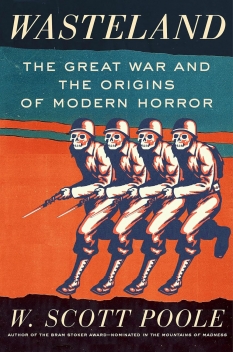"If ever there was a German who foresaw nothing but defeat and punishment for his native land, even in the days when the great majority of his fellow-countrymen were mad with anticipation of victory and world domination, it was Helmuth von Moltke (1848 - 1916)."
- from Amazon:

Click here to read a 1922 review of the Kaiser's war memoir. In the attached article, an American journalist ruminated about the U.S. experience in W.W. I on the eve of W.W. II. All told, he didn't think intervention was a good idea but was grateful America learned its lesson.
"Suffice it here to record the unquestioned fact that American determination which was enthusiastic at the outset became more and more grim as reality replaced imagination." A fascinating read. Written twenty-one years after the war, journalist Thomas M. Johnson, who had covered the A.E.F. for The New York Sun, revealed all the tricks employed by the U.S Army Intelligence Service to get the most information out of every German prisoner they could get their hands on - and none of them involved breaking bones or shedding blood.
More about W.W. I prisoners of war can be read here
Looking back twenty-one years at the W.W. I commands of General Charles Summerall (1867 - 1955), historian Fletcher Pratt pointed out that it was the general's unique understanding of artillery that served as the key to his success in battle. Attached is one American journalist's view of the Great War as it is waged on the home-front by the British people. He was impressed with the resolve of the population to win the war and he found that everyone, regardless of age or infirmity, was pursuing war work with a surprising earnestness.
"The outward evidences of a nation at war are plentiful in London. Soldiers are everywhere. Columns of armed men and columns of recruits still in civilian clothes march through the streets. Drilling goes on in the parks and other places all day and every day."
Read about how the First World War effected life on the campus of Eton College. Attached are two articles by American journalist Lowell Thomas (1892 - 1981) regarding all that he witnessed while reporting on General Edmund Allenby's campaign against Johnny Turk in the Sinai and Palestine Theater during the First World War. This reminiscence was written many years after the war in an effort to make up for the fact that "after eighteen years, no clear-cut account of Allenby's campaign has been set down."
Click here to read about Lawrence of Arabia...
|